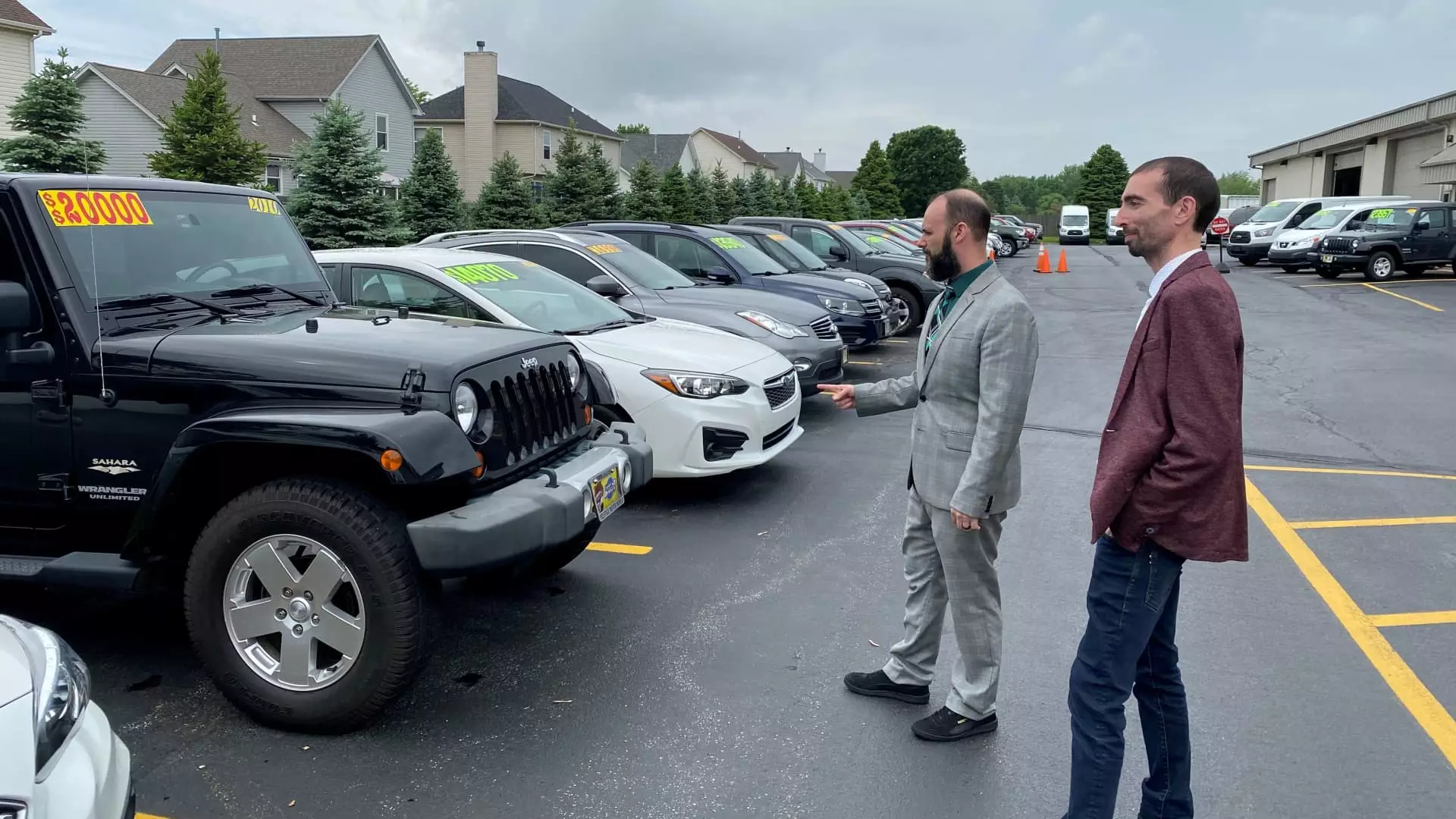As we approach 2025, a wave of renewed optimism appears to be sweeping through the ranks of U.S. car dealerships. The reason for this shift stems largely from the political dynamics following the recent presidential election, particularly the return of Donald Trump to the White House. However, not all elements of the auto market are basking in the glow of positive sentiment—specifically, the outlook for electric vehicle (EV) sales seems to be dimming amidst rising concerns surrounding future government policies.
According to the Cox Automotive “Q4 2024 Dealer Sentiment Index,” a quarterly gauge compiled from surveys of auto dealers nationwide, many dealers express heightened confidence about the general sales environment. The sentiment index rose significantly, reflecting dealers’ belief that business conditions might improve in the near term. Yet, this optimism contrasts sharply with the sentiment surrounding the sale of electric vehicles, marking a complex and challenging landscape.
Despite the growing general optimism, dealers are grappling with a significant caveat concerning the sale of electric vehicles. A noteworthy majority foresee a dip in EV sales in the upcoming months. Factors influencing this pessimistic outlook include potential policy changes that might diminish support for EVs. Reports indicate that the Trump administration may reconsider existing federal incentives, such as the consumer tax credit aimed at boosting the transition to electric vehicles.
Cox Chief Economist Jonathan Smoke emphasized the role these tax credits play in energizing sales across the automotive spectrum. His insights suggest that the uncertainty surrounding the potential rollback of these credits has contributed to a bleak forecast for EV sales. “This is something that could change fairly rapidly next year,” Smoke noted, underlining the fragile status of EV tax incentives and their direct impact on dealer sentiment.
While the sentiment index reflects an overall positive trajectory, the market reality remains nuanced. The current score of 42 on the index still implies that more dealers perceive the retail auto market as weak rather than strong. The increase from a mere 41 points one year ago indicates a cautious hope rather than an outright recovery. Dealers remain vigilant, watching the interplay of interest rates, consumer demand, and political decisions that can drastically alter the landscape of auto sales.
Interestingly, political uncertainty has lessened since the election, with only 35% of dealers now citing the political climate as a significant factor affecting their operations—a notable decline from previous surveys. This decrease signifies a growing confidence in the stability of the market, which could be bolstered further by tax incentives and potential cuts in interest rates.
The auto dealer stocks have so far performed impressively in 2024, reflecting a resilient pricing environment in both new and used vehicle segments. Notable automotive retailers like AutoNation, Lithia Motors, and Sonic Automotive have seen their shares climb between 15% to 22%. Among these, Group 1 Automotive triumphs with a staggering 40% increase in its stock valuation this year.
In this environment of heightened prices, auto dealers appear to be adapting, leveraging market demands and conditions to sustain their profitability. However, this effectiveness hinges on factors that remain unpredictably intertwined with broader economic and political movements.
Looking towards 2025
With the road ahead marked by both challenges and opportunities, U.S. car dealers must navigate a complex terrain as they prepare for 2025. As consumer preferences shift and market dynamics continue to evolve, the dual narrative of optimism for traditional auto sales and concern for electric vehicle prospects paints a vivid picture of the industry’s future.
The stakes are high as dealers advocate for continued support for EVs while positioning themselves to capitalize on improving economic conditions. The upcoming months will be crucial, as the interactions between consumer behavior, governmental policy, and market dynamics unfold, ultimately shaping the future of the auto industry in America.


Leave a Reply